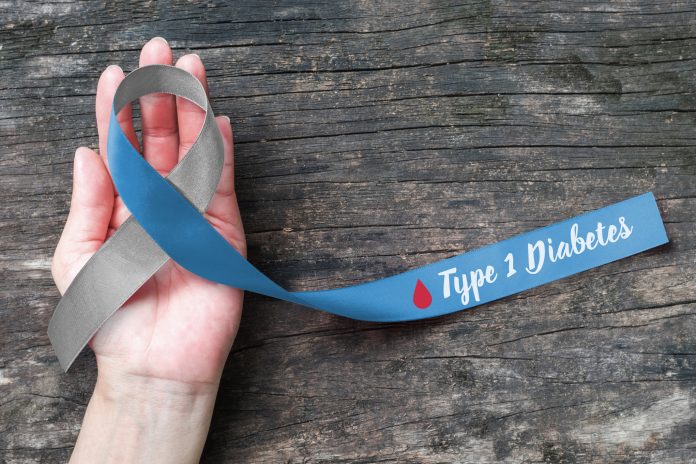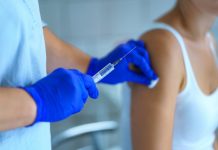Jean Van Rampelbergh PhD, VP Clinical & Regulatory at Imcyse SA, introduces ImotopesTM a cutting-edge immunotherapy science with an excellent safety profile that could cure Type 1 diabetes or drastically change treatment options
It is commonly perceived that diabetes is a disease that has been solved through the use of insulin and diet change, sadly this is not the case. Although in the past 40 years innovations have improved the lives of diabetes patients, there have been no new advances that can take the place of daily insulin injections. In the exciting world of new medical approaches, Imcyse SA, from the Walloon Region of Belgium, has developed a disruptive approach based on immunotherapeutic principles and logic. In December, the first patient with recent-onset Type 1 diabetes (T1D) was treated in the Company’s Phase 2 clinical trial – IMPACT – with IMCY-0098, an ImotopeTM that specifically targets the autoimmune response destroying insulin-producing cells without harming the rest of the immune system.
ImotopesTM: A short-term disease modifying treatment with potential long-term effect in Type 1 diabetes; good safety through a targeted approach
In T1D, the pancreas is damaged due to an aberrant immune response. This damage causes the organ to stop producing insulin, the hormone that controls blood-sugar levels. In the majority of cases, T1D begins in children and adolescents, but also affect adults. The Imcyse approach is a unique and highly specific technology that specifically targets immune cells involved in the destruction of the diseased organ and aims to interfere early enough in the disease progression, so the aberrant immune response is halted and the immune system is recalibrated.
Imcyse’s new drug candidate IMCY-0098 is intended to stop the destruction of beta-cells and block the autoimmune response. Through this simple intervention, the pancreas maintains its natural ability to produce insulin. ImotopeTM science is designed as a short-term treatment regimen with the potential to provide long-term sustained effects by modifying the disease instead of only controlling the symptoms. This targeted approach has demonstrated a good safety profile observed in a Phase 1 study.
The ongoing IMPACT study: Unique opportunity for adult patients run by leading EU experts; first patients treated in December
In December, in collaboration with INNODIA – a collection of T1D experts, Imcyse started a vital Phase 2 clinical trial to evaluate the ability of IMCY-0098 to stop diabetic progression in newly diagnosed patients as well as to determine the best and safe dose and regimen for continued development. The trial will initially recruit adult patients, offering a unique and new treatment option and, therefore, is particularly attractive for adults newly diagnosed T1D patients. To date, there are no therapeutic options aside from traditional insulin medication that benefit patients and no other clinical trials are currently open to testing new options for adult patients older than 25.
The IMPACT Study is a multi-centre, clinical trial with sites located across Europe in Belgium, the United Kingdom, Sweden, Slovenia and Italy.
The trial protocol is designed to be adaptive and comprises of two steps: Step one, currently open for recruitment, will enrol 24 participants, aged 18-45, who are randomly assigned to one of three treatment arms and will follow patients for up to 48 weeks. This step will explore the immune signature and safety of the treatment comparing two different doses with placebo. The results from these findings will be used to determine the best dose and regimen for IMCY-0098 to be used in the next step. If all goes well, the second step should recruit 60 participants, continuing with adults between 18 and 45 years and planning to also include, with supportive safety data, adolescents aged 12-17 to evaluate the treatment effect on the preservation of beta-cell function. Interim study results are expected after step one is completed in Q4 2021.
An Independent Data Monitoring Committee consisting of renowned international experts will supervise the study to ensure the safety of the patients and will decide on the best dose/regimen to be used in the second step.
For each participant, the study comprises a total of 10 (first step) or 11 (second step) visits over the course of approximately 52 weeks (from a screening visit to the last planned visit). The participants will undergo planned assessments and procedures, as outlined in the clinical trial procedures.
Learn more about the IMPACT trial here.
Collaboration with the leading T1D network: INNODIA
Imcyse is a proud member of INNODIA, a global network of academic institutions, industrial partners and patient organisations bringing their knowledge and experience together to fight T1D. With collaboration and support from INNODIA in the IMPACT study, Imcyse will gain greater access to T1D patient populations. In addition, this platform for scientific knowledge and technical approaches exchange will aid Imcyse in refining treatment with the ImotopeTM approach as a safe and effective therapy for patients with early T1D.
To learn more about T1D and the IMPACT trial visit: INNODIA T1D UK Consortium.
Other diseases to address with the ImotopeTM approach
ImotopesTM have the potential to make a meaningful impact on many autoimmune and other diseases. Other potential indications include multiple sclerosis (MS), Coeliac Disease and Neuromyelitis Optica (NMO). ImotpeTM technology could also be used in the treatment of allergies and the prevention of skin graft rejection. Additionally, it could be applied as an “add-on” therapy to other drugs or biologics to prevent the progression of immunogenicity and the loss of efficacy due to chronic administration.
With our novel technology platform, we seek to tackle T1D from a new perspective and offer patients new hope with confronting this life-long autoimmune disease. Follow our journey at: www.imcyse.com.
INNODIA Harvest programme – H2020 grant reference number 945268.
Please note: This is a commercial profile








